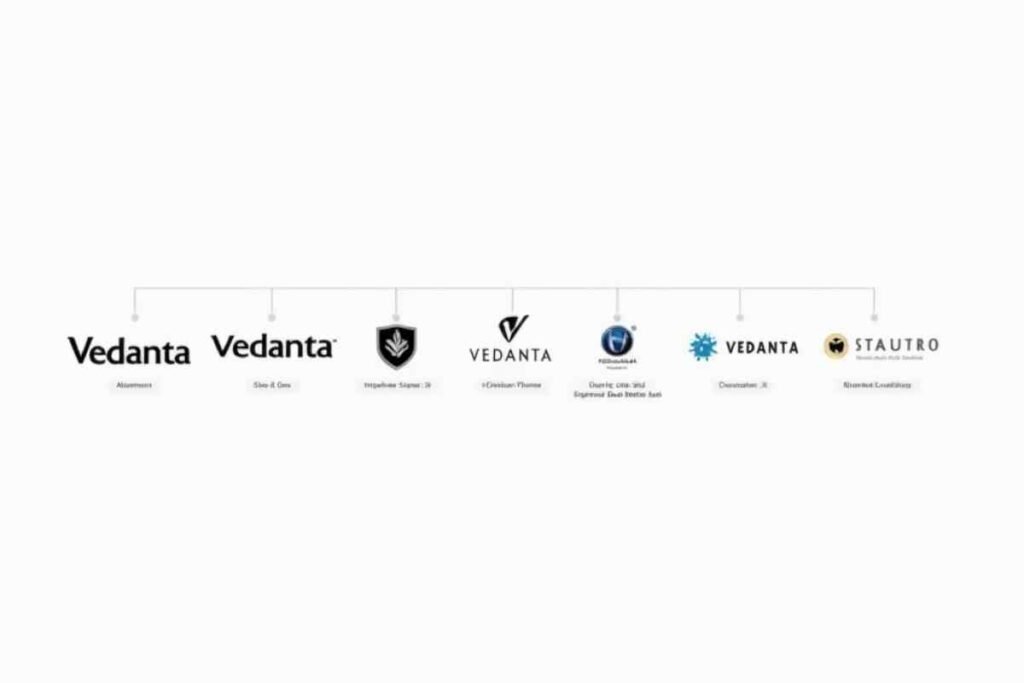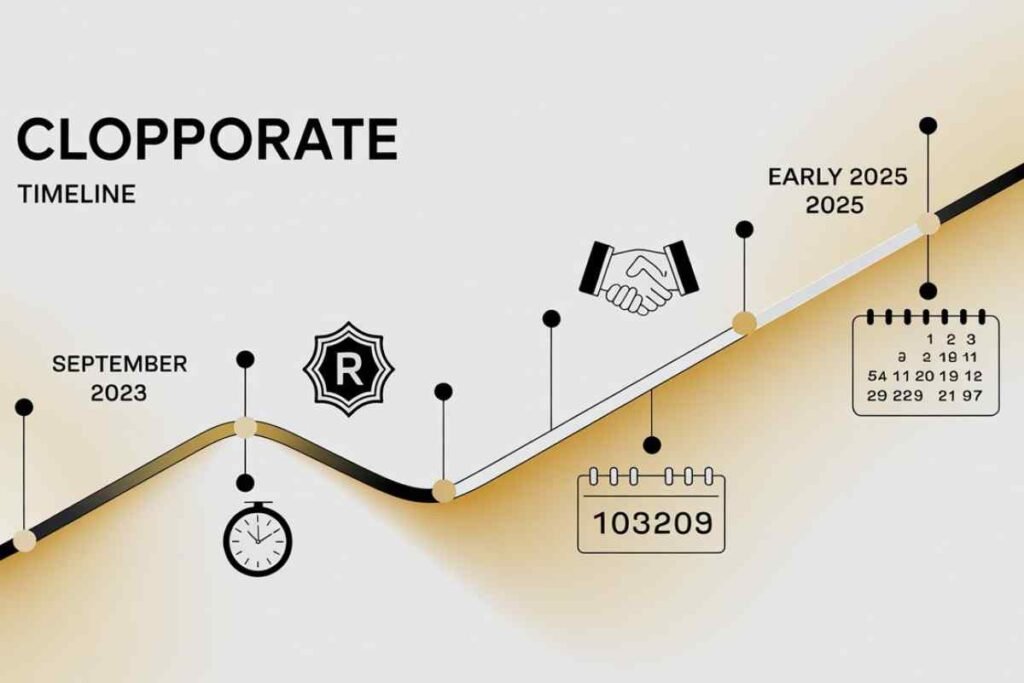The Vedanta demerger plan is poised to transform the Indian corporate landscape It marks one of the largest structural reorganizations in recent memory aimed at enhancing shareholder value and enabling focused growth.
Vedanta demerger plan Ltd has decided to split its multifaceted operations into multiple listed companiesThis move is not just a financial strategy it reflects a long term vision to simplify operations attract sector specific investors and improve transparency.
Through this plan Vedanta intends to reorganize its core businesses ranging from aluminum and oil to power and metals into separate entities By doing so each business unit can operate independently raise capital effectively and compete efficiently in its respective sector.
What is the Vedanta Demerger Plan?

A demerger refers to the process by which a large company divides itself into multiple independent companies In Vedanta demeger plan case the goal is to separate its diversified portfolio into six individual entities.
These will include Vedanta demeger plan Aluminium Vedanta Oil & Gas Vedanta Power Vedanta Steel and Ferrous Materials Vedanta Base Metals which includes Hindustan Zinc and the residual Vedanta Ltd.
Each of these companies will be independently listed on stock exchanges and shareholders of Vedanta Ltd will receive proportionate shares in the new entities This means there will be no dilution of equity and the current shareholder structure will remain intact across all the newly formed companies.
Why Vedanta Chose to Demerge
This demerger reflects Vedanta’s vision to.
- Simplify its corporate structure
- Improve transparency for investors
- Enable each business to raise sector specific capital
- Focus on specialized leadership and governance
- Attract global and domestic investors with sectoral interests
By isolating risk and opportunity in each vertical Vedanta aims to position each business for independent growth.
The Structure and Purpose of the Vedanta Demerger plan
Before this plan Vedanta operated as a single umbrella organization with interests in multiple sectors including mining metals energy and oil & gas While this structure offered scale it made it difficult for investors to accurately value the company as each segment had different growth cycles and risk profiles.
By separating the businesses Vedanta aims to unlock hidden shareholder value For example investors who are bullish on the aluminum sector can now directly invest in Vedanta Aluminium without being exposed to oil or steel This focused structure is also expected to bring operational agility better capital allocation and improved sectoral governance.
Benefits of the Vedanta Demerger Plan
The strategic separation offers multiple advantages
- Focused Capital Allocation Each company can invest where it matters most.
- Improved Valuation ClarityI nvestors can now assess each business independently.
- Enhanced Governance Sector specific boards and management will ensure efficient operations.
- Market Appeal More investors including ESG focused and sector specific funds can now participate.
This could make Vedanta’s overall valuation greater than the sum of its parts.
Strategic Goals of the Vedanta Demerger plan?
Unlocking Shareholder Value
One of the main motivations is to allow investors to value each business independently For instance.
- Aluminum and oil sectors have cyclical valuations
- Power and base metals are more capital intensive
Independent valuations can lead to better price discovery and ultimately higher investor returns.
Sector Focused Capital Allocation
With separate entities capital can be deployed more efficiently based on sector specific needs and risks For example.
- Vedanta Power can focus on decarbonization
- Vedanta Oil & Gas can invest more in exploration
Attracting Strategic Investments
By demerging Vedanta demeger plan can potentially attract sector specific investors and joint ventures such as.
- Sovereign wealth funds in oil & gas
- ESG-focused investors in renewables
Simplifying Corporate Governance
Each entity will have.
- A separate board
- Individual financial statements
- Focused compliance and ESG metrics
Impact on Shareholders and Market Response!
The market has reacted positively to the Vedanta demerger plan announcement. Share prices surged over 10% soon after the news broke Analysts have expressed optimism about improved valuations and better investor participation.
For shareholders the plan ensures that they receive shares in all six companies in proportion to their existing holdings. This avoids any loss in value and gives them the flexibility to hold or trade in specific sectors based on their preferences.
However some investors are cautious. They cite concerns over the complexity of execution potential regulatory hurdles and uncertainties in the operating environment Despite these risks most analysts agree that the long term benefits outweigh the short term challenges.
Regulatory Path and Legal Considerations!
The demerger plan will be executed through a court approved scheme under Sections 230 to 232 of the Companies Act 2013 It will require clearances from multiple stakeholders including the Securities and Exchange Board of India SEBI the National Company Law Tribunal NCLT shareholders and creditors.
If the demerger qualifies as tax neutral shareholders will not be liable for capital gains tax The new companies will also not incur any stamp duty or tax liabilities on the asset transfers. This makes the transaction both investor friendly and cost effective However a final ruling from tax authorities is still pending.
Timeline and Key Milestones

Vedanta has outlined a clear roadmap for the demerger The initial announcement was made in September 2023 Shareholder approval is expected by March 2024 followed by regulatory approvals during the rest of the year.
The entire process is expected to be completed by early 2025 assuming all clearances are received on schedule This timeline gives enough room for Vedanta to build governance structures. recruit independent leadership for each entity and engage with investors and regulators to ensure a smooth transition.
Regulatory and Legal Framework of the Vedanta Demerger Plan?
SEBI and NCLT Approval
The demerger plan requires.
- SEBI nod for compliance with listing norms
- NCLT approval under the Companies Act
- Shareholder and creditor approval
The process is expected to take 12 to 15 months subject to smooth regulatory clearances.
Tax Implications
If the demerger is tax neutral:
- No capital gains tax on share transfer
- No stamp duty
- No additional tax burden on shareholders
However, the final ruling from the tax authorities is awaited.
Leadership and Corporate Vision
Anil Agarwal Chairman of Vedanta demeger plan Group described the demerger as a historic step in the companys evolution His long term vision is to build independent world class businesses that can operate efficiently and deliver shareholder value.
Each new company will have its own CEO and CFO supported by sector focused boardsThis is expected to enhance governance improve decision making speed and promote innovation within each unit.
How the Demerger Will Be Implemented
The Vedanta demerger plan will follow the legal process under Sections 230 232 of the Companies Act 2013 Key steps include
- Approval by SEBI and NCLT.
- Consent from shareholders and creditors.
- Clearance from tax authorities for tax neutrality.
- Court-sanctioned scheme of arrangement.
Vedanta aims to complete the process by early 2025 assuming all regulatory approvals go smoothly.
Economic Impact of the Vedanta Demerger Plan
On the Indian Economy
As Vedanta is a significant contributor to Indias GDP and employment the demerger can.
- Boost sectoral investments
- Promote Make in India
- Create new job opportunities
On Global Competitiveness
Vedantas move positions India as.
- A favorable destination for FDI in natural resources
- A competitive player in global commodities markets
Challenges and Risks to Consider

While the demerger promises many benefits its not without challenges Transitioning into independent companies requires building new governance systems migrating employeesrealigning capital structures and developing independent strategies.
Another key challenge will be managing investor expectations Each new entity must prove its financial and operational strength to gain market confidence Talent retention and regulatory compliance are also potential hurdles that could delay or disrupt the demerger process.
Conclusion
The Vedanta demerger plan stands as a landmark event in Indias corporate restructuring landscape By splitting into multiple independent listed entities Vedanta is not only unlocking hidden shareholder value but also paving the way for sector specific growth and innovation This strategic move reflects a broader global trend toward deconsolidation.
Where complex conglomerates are simplified to create leaner, more efficient, and more transparent businesses For investors this demerger offers an opportunity to gain exposure to focused sectors such as aluminum oil & gas power steel and base metals each with its own growth dynamics and risk profiles More importantly the demerger makes it easier for institutional and retail investors to analyze.
Value and invest based on specific industry performance rather than a mixed portfolio In the long run if executed properly this restructuring could serve as a blueprint for other Indian business houses looking to unlock value improve governance and attract targeted foreign and domestic capital.
FAQs
What is the Vedanta demerger plan?
The Vedanta demerger plan involves splitting Vedanta Ltd into six separate listed companies based on their business verticals such as aluminum oil & gas power and more.
How will shareholders be affected by the Vedanta demerger?
Existing shareholders will receive shares in the new companies on a proportionate basis retaining their investment value across all the entities.
What are the benefits of the Vedanta demerger plan?
Key benefits include unlocking shareholder value sector specific focus better capital allocation and the ability to attract targeted investments.
When will the Vedanta demerger plan be completed?
The demerger is expected to be finalized by early 2025 subject to regulatory and shareholder approvals.
Are there any risks in the Vedanta demerger plan?
Yes including regulatory delays execution complexity and uncertain market reactions However long term prospects are considered strong.


